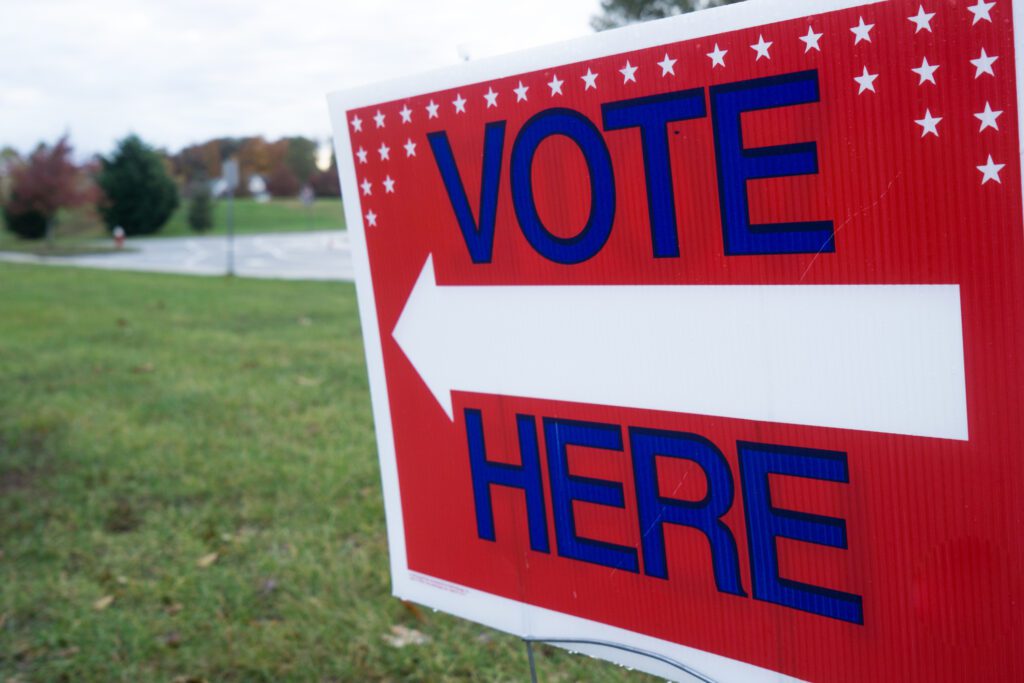New Jersey and Virginia’s ’21 Elections Are Testing Grounds for the Midterms

This year’s elections in Virginia and New Jersey are a big deal for people in those states, but they’re also a big deal for political professionals across the country. Like athletes in training, many political campaigners will treat 2021’s off-off year elections as a chance to prepare for bigger games next year. While Joe Biden won’t be on the ballot in 2022, all of the House and a third of the Senate will be, along with Biden’s ability to actually pass his agenda. This year’s statewide and legislative elections provide a chance to test tools and tactics, build alliances and add supporters.
Virginia will get extra attention, since political control of the state will be on the ballot. Democrats have dominated the Commonwealth in recent cycles, but with a Democrat in the White House, the specter of the “Virginia Curse” hangs over Terry McAuliffe, the party’s nominee for governor. Democrats also look back at 2009 and 2010 with a shudder, since the party’s voters took a breather after putting Barack Obama in the White House, ceding the field to the Tea Party. Republican domination of the subsequent redistricting process has hobbled Democrats in states like Wisconsin, North Carolina and Texas ever since. Will Republicans benefit from a similar dynamic this time around?
To keep their voters engaged, Democratic organizers, activists and campaigners will throw plenty of different strategies and tactics at the wall to see what leaves a mark. Some of them will get help from funders specifically asking them to test different turnout models scientifically, with an eye toward taking successful ideas nationwide next year. I’ve spoken personally with organizations applying for grants specifically intended to pay for randomized controlled tests of their GOTV strategies, for example. Democratic campaigns and funders don’t seem as eager to pour money down a hole this time around, a change from some previous election cycles.
One hurdle? With so many groups targeting a relatively small number of competitive legislative districts, separating out which one(s) made an actual difference will require experiments to be designed carefully. Regardless of the complications involved, expect to see groups testing distributed organizing models, relational organizing tools, peer-to-peer texting strategies, data-driven outreach mechanisms and more. While we’re unlikely to see entirely new and revolutionary approaches this year, optimization is in the air, as is a desire to find and fill gaps in the toolbox.
It’s also a great time to build capacity, particularly to grow email and SMS texting lists. For once, national Democrats have outspent their Republican counterparts on digital recruiting this year, to the tune of an eight-to-one advertising advantage at the moment. That gap will likely narrow, but at least judging from my inbox, Republican organizations appear to be buying lists more than building them. I seem to get a message from a new candidate or PAC just about every day, and groups like the NRSC are screaming for my attention whether I asked to hear from them or not. Remember those bad email practices we talked about a few months ago? Some fundraisers on the right act as though awful Democratic habits are a guidebook, not a cautionary tale.
But the big determiner of midterm winners and losers in many places will have nothing to do with political campaigns or political vendors. The decennial redistricting wave should start rolling later this year, and until the new lines are set, candidates can’t even be sure on what ground they’ll fight in 2022. My first substantive political experience was a 1993 redistricting special session in the Texas Legislature, where I saw up close how even a few small shifts can launch or end a political career. Gerrymander a whole state, and you can lock in your side’s power for years on end. Even the best technologies stand little chance against bad lines, at least until populations shift and gerrymanders lose their bite.
Whether locked in a packed-and-cracked conundrum or fighting on fairer ground in 2022, political professionals will make the best of it — as usual. It’s just what we do.
It’s on us to do the best job we can with the resources we have, regardless of the circumstances. If we’re lucky, campaigning in Virginia and New Jersey this time around will help steer us onto solid ground before the congressional fights kick off. Good luck to us all.
Colin Delany is founder and editor of the award-winning website Epolitics.com, author of the new 2021 edition of “How to Use the Internet to Change the World – and Win Elections,” a twenty-five-year veteran of online politics and a perpetual skeptic. See something interesting? Send him a pitch at cpd@epolitics.com.

